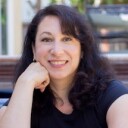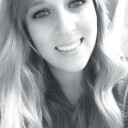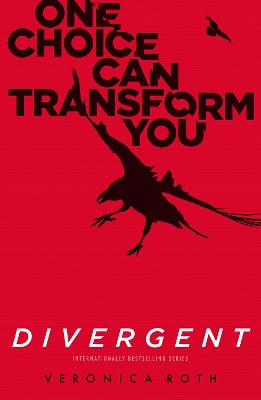
The explosive debut by No. 1 New York Times bestselling author Veronica Roth.
DIVERGENT – a major motion picture franchise.
The first book in the DIVERGENT series that has swept the globe – selling millions of copies world-wide.
In the world of Divergent, society is divided into five factions – Candor, Abnegation, Dauntless, Amity and Erudite. Every year, all sixteen-year-olds must select the faction to which they will devote the rest of their lives. For Beatrice Prior, the decision is between staying with her family and being who she really is. Her choice shocks everyone, including herself.
During the initiation that follows, Tris and her fellow initiates undergo extreme physical tests of endurance and intense psychological simulations, with devastating consequences. As initiation transforms them, Tris must determine who her friends really are – and whether she can trust the man who both threatens and protects her.
Because Tris has a deadly secret. And as growing conflict threatens to unravel their seemingly perfect society, this secret might save those she loves… or it might destroy her.
Debut author Veronica Roth bursts onto the scene with the first book in the Divergent trilogy – dystopian thrillers filled with electrifying decisions, heartbreaking betrayals, stunning consequences and unexpected romance.
- ISBN13 9780008167905
- Publish Date 31 December 2015 (first published 1 May 2011)
- Publish Status Out of Print
- Out of Print 21 February 2024
- Publish Country GB
- Publisher HarperCollins Publishers
- Imprint Harper Fire
- Format Paperback
- Pages 496
- Language English
- URL http://harpercollins.co.uk
Reviews


puchunga

Whitney @ First Impressions Reviews
I really liked how the novel was set in futuristic Chicago and was really fun to read the descriptions of The Bean, Michigan Avenue and other Chicago attractions. I felt it added umph to Veronica Roth's novel making the dystopian level all the more realistic.
On another more serious note, when Tris first enters her faction and begins training it's quoted:
"My family would never approve of me firing a gun. They would say that guns are used for self-defense, if not violent, and therefore self-serving." ~ page 78
For a brief moment the anti-gunner in me thought "oh good we may make a political statement about the stupidity of guns." While I felt it was hinted, it was also short lived as Tris hits her target in training. By this statement, I am not trying to come off as a Ravid anti-gun advocate I just don't like the precedent it implies. I'm not sure why I am surprised by this as it is stated on the dust jacket and I feel it is akin to The Hunger Games.
Other than that gripe, I thought the story was well laid out and had adequate suspense, thus creating a fast-paced, enjoyable read. Veronica Roth's novel is addicting, I wanted more, and while the description is overused, Divergent was unputdownable. Thank goodness it's a trilogy.

catiebug

Romance Schmomance

mrs_mander_reads

lovelybookshelf
The society in Divergent doesn't seem all that bad, though I disagree with the "seemingly perfect" description mentioned in the synopsis. I mean, the "factionless" are right there from the start, and I wouldn't call their situation perfect by any means. People seem to have the choice of which faction they wish to belong to, but it's a permanent decision (no changing factions later on) and not a guarantee.
There is a romance which takes a good while to develop. It's not overdone at all. There are also a couple of silly girly moments which reminded me that this is a YA novel, but truly, these moments were very brief.
You know what I loved most about this book? Tris wasn't a perfect, put-her-up-on-a-pedestal kind of heroine. She does possess all of the qualities important in a great protagonist, but she also has a darker side and we see her flaws clearly.
Divergent is the first in a series, so it ends on a cliffhanger. This is a fun, entertaining page-turner you don't have to think about too deeply. I can't wait to read the other books and find out what happens next.

Stephanie
Basically, the book is about Tris being initiated into the faction of her choice. And the initiation is quite action packed. Which I was surprised to find out that it was so full of action. If I actually bit my finger nails, I would have been biting them as I read. I've never had a book make me nervous or scared the way this one did. This is definitely one of those books that remind you why you love reading so much.
I really liked that this book focused a lot on choices. I'm terrible with making choices and take way to long to decide on things. And Tris is so, well, she's not fearless, but she's close enough. I would never have the guts to jump off a train or off the side of a building. Especially since she grew up in Abnegation, where running wasn't even allowed. How she could just jump into the swing of things and barely hesitate is beyond me. The whole time I was reading I was trying to figure out what faction I would be in. It would definitely not be Dauntless.
And I have to mention Four. How can you not love Four, even though he could be scary at times. And he was very difficult to figure out. But that just makes him more awesome.
And I'm really trying not to spoil the book. That was the best part for me, going into the book, not knowing what to expect. So I'll just leave it at this:
Overall this is a fantastic debut and I can't wait to read the next book in the series. And everybody need to go get this book, if you have not gotten it yet, and read it!

sleepseeker
I can't wait to see what happens in book two.

nannah
Because although I wanted to be swept away into the craze, Divergent left me feeling pretty lukewarm. Don't get me wrong, Roth definitely has some skill as an author. She can put together some beautiful sentences and really create some fantastic imagery when she wants to. However, overall, I don't think the story came together as something that worked for me.
I think the main problem is the plot structure. For the first half of the book, I'm not quite sure what the plot actually is. It's only in the last quarter that things start to pull together, and then rush like it's supposed to have been building the entire novel. I always find that in these books where the protagonist goes off and trains somewhere that the actual training takes up most of the beginning (and in this case also the middle) and it's only halfway in or afterwards that the actual story begins. It's a pattern I'm seeing more and more often nowadays . . . But back to Divergent's main "plot," it was so hastily and sloppily done that I felt cheated by the end of the book. Not to mention there were so many character deaths that lacked purpose or focus. It felt like a climax that Roth wanted to feel climactic without having thought about why it would be climactic compared to the events that had happened thus far. Especially seeing that the villain's motives didn't seem to make any sense to me.
Another thing here is what the whole book's about: Divergence. There are supposedly five factions that make up current society: the Abegnation (the selfless-people who run the government), the Erudite (the intelligent-people who, I don't know, research and invent things), the Candor (the honest, and I've no idea what they do! Someone, please tell me, what do these people actually do?), the Amity (the peaceful, farmers and the like), and the Dauntless (the brave, basically in charge of security, etc.). And THEN there are the factionless, people who've lost their faction and get basically blue-collar jobs. They're considered to be the scum of the earth pretty much and a waste of resources, thank you for that, Roth. Thank you for that horrible and disturbing message.
But my real issue with these factions is that . . . how do they even work together to form a society that even functions? Even sort of functions? It's said that these factions formed when society fell apart, but how would this be a possible solution? Sure, it fits for creating this certain plot line, but I feel like Roth didn't think this through. AND particularly, how would they EVER agree to make one faction in charge of the ENTIRE government? How does that make sense? And you wonder why later they start to think, "Man, I don't think that was such a good idea." --> insta-plot, yo! It's beginning to feel like this whole book was a first draft that needed more thought. Also, why aren't there more people who are Divergent? There can't be so few people whose thinking spans different areas. Really, there can't. PLUS why would they let people switch factions?? Wouldn't that allow for people's thinking to change and expand, thus making them Divergent? Or are you only "born that way"?
Okay, I'll stop there with that, and I'll move onto our protag, Tris. Why, oh why, must authors try and downplay their main women characters by playing the "I'm ugly" card? Especially if she's blonde-haired, blue-eyed, flat-chested and skinny (sounds like most models to me). Plus she kept on repeating it over and over, along with "I'm short" all the time. I kept waiting for the "I'm short" thing to be used as an advantage because of how often it had been repeated, but apparently it was just used to make her more flawed, which I object to. Vehemently!! Besides this, she kept remarking on other people's appearances in horrible ways. The villain in particular (which only appeared for a second) was body-shamed, described by our protag--who was shot, may I add, and bleeding, and yet needed to note that the bad character had a spare tire and stretch marks. Thank you for this. Because we all know everyone who's evil are the ones who look less pretty than you.
Thank you.
I'd also like to add that the book kept putting guns in such a positive light. She felt safe when she had guns. Guns were the answer to EVERYTHING. Guns=solutions. Every time. Every single time.
All right, I'm getting increasingly more bitter as this review goes on. I didn't hate this book, really I didn't. But I didn't like it all that well, either. I kept thinking it'd have more to offer than the lousy, hastily-added war plot line tagged on at the end. Unfortunately I just couldn't get into it.
